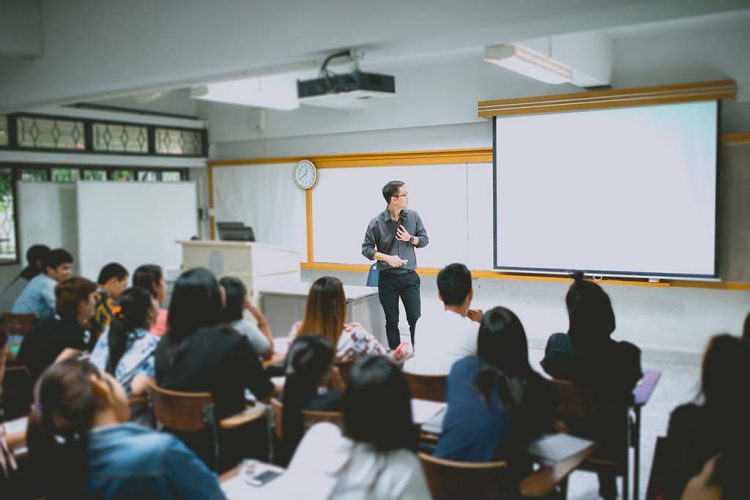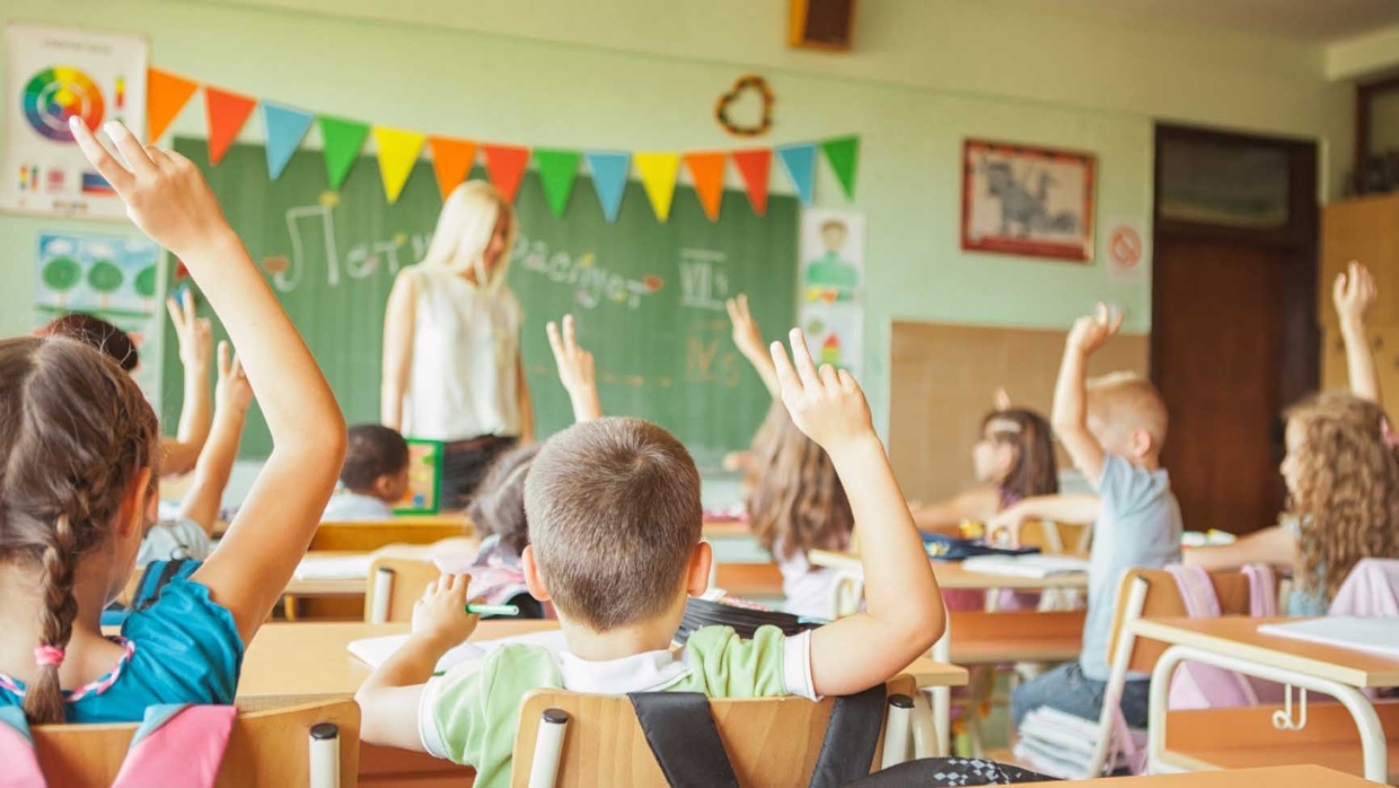Expert Tutors Offering Primary Science Tuition Singapore for All Grades
Expert Tutors Offering Primary Science Tuition Singapore for All Grades
Blog Article
Checking Out the Various Teaching Methods in Key Science Education And Learning Today
The landscape of primary scientific research education and learning is developing, with various mentor strategies acquiring importance in contemporary class. Inquiry-based learning, hands-on experiments, and the integration of innovation are redefining just how educators engage young minds. In addition, joint strategies and separated guideline are being utilized to deal with the varied needs of students, boosting both engagement and understanding. As we analyze these methods, concerns emerge about their efficiency and the ramifications for future academic methods. What might these changes in method mean for the future generation of learners?
Inquiry-Based Discovering
Inquiry-Based Discovering (IBL) is a pedagogical method that motivates trainees to check out scientific concepts via questioning, investigation, and hands-on experimentation. This approach highlights the function of trainees as active participants in their learning, advertising essential reasoning and analytic skills. By engaging with real-world inquiries, pupils come to be determined and interested, which improves their understanding of scientific principles.
In IBL, educators function as facilitators, directing students as they navigate their questions instead than delivering details directly. This student-centered technique permits distinction, fitting various finding out designs and speeds. Students create abilities in formulating theories, designing experiments, and assessing information, which are vital for scientific proficiency.
Additionally, IBL fosters collaboration amongst pupils, motivating them to share ideas and searchings for. This cumulative inquiry advertises social skills and a feeling of community within the class. Additionally, the procedure of query urges resilience, as trainees find out to accept failing as a stepping stone towards understanding.
Hands-On Experiments
Hands-on experiments are an essential component of reliable science education, matching the concepts of inquiry-based learning. These experiments permit students to involve directly with clinical concepts, cultivating a much deeper understanding via experiential understanding. By controling products and observing results, young learners can comprehend abstract concepts in tangible methods.
Such tasks advertise essential thinking and problem-solving skills, as trainees hypothesize end results, conduct experiments, and evaluate results. This process motivates them to ask concerns, refine their understanding, and establish a scientific mindset. Additionally, hands-on experiments can be customized to diverse learning designs, making certain that all pupils have the possibility to involve meaningfully with the web content.
Additionally, hands-on experiments commonly motivate partnership among peers, promoting team effort and communication abilities. Operating in teams makes it possible for pupils to share concepts, review searchings for, and discover from each other, which improves their overall instructional experience.
Including hands-on experiments into the main scientific research curriculum not only improves the finding out environment but additionally grows a lifelong passion in science. By actively participating in their education and learning, trainees are most likely to establish a passion for clinical query that expands beyond the classroom.

Technology Combination
Incorporating modern technology right into key scientific research education and learning has actually become progressively necessary in cultivating trainee interaction and boosting learning outcomes. The use of electronic devices, such as interactive simulations, virtual labs, and instructional software program, supplies trainees with chances to discover scientific concepts in innovative ways. These sources facilitate a deeper understanding of complicated subjects by enabling learners to visualize and manipulate variables that would certainly be unwise in a standard class setting.
Furthermore, technology integration encourages individualized finding out experiences. Trainees can proceed at their very own speed, reviewing challenging principles through multimedia resources, which deal with various knowing styles. This flexibility not only sustains private growth yet likewise grows a feeling of freedom in learners.
In addition, innovation acts as a bridge to real-world scientific research, linking students with existing research study and expert contributions. Accessibility to on the internet databases index and clinical journals widens students' perspectives on clinical inquiry and promotes vital thinking abilities.
Collaborative Learning
Joint understanding plays a crucial role in main science education and learning by cultivating team effort and interaction skills amongst students. This technique urges learners to interact, share understanding, and take part in analytical, which enhances their understanding of scientific principles. By participating in team activities, students discover to express their ideas, listen to diverse viewpoints, and review work out remedies, every one of which are necessary abilities in both academic and real-world contexts.

Study suggests that joint knowing can bring about enhanced motivation and engagement in science topics, as students find pleasure in shared experiences (primary science tuition Singapore). In addition, this method prepares trainees for future collaborative ventures, furnishing them with the abilities necessary for efficient synergy in college and specialist environments. Ultimately, accepting collective understanding in key scientific research education can substantially improve the knowing experience and promote a deeper understanding of clinical inquiry
Separated Guideline

Differentiated direction can manifest in different ways, such as varying the material, procedures, or products of understanding. Educators may use tiered tasks that offer differing degrees of complexity, allowing trainees to work at their corresponding preparedness levels. Furthermore, versatile organizing approaches can help with collaboration among trainees with different capabilities, cultivating peer learning.
Evaluation plays a vital function in this technique, as it educates guideline and aids instructors comprehend each pupil's one-of-a-kind demands. Developmental analyses, such as tests and monitorings, can assist instructors in changing their techniques to improve learning outcomes. primary science tuition Singapore. Inevitably, by implementing differentiated instruction in key scientific research education and learning, instructors can cultivate a more reliable and equitable knowing environment, empowering all pupils to reach their complete potential in understanding scientific sensations
Final Thought
In summary, the varied training methods in primary scientific research education and learning, including inquiry-based learning, hands-on experiments, modern technology combination, collaborative understanding, and set apart direction, collectively add to a much more effective learning setting. These approaches promote crucial thinking, analytic skills, and a deeper understanding of scientific concepts. By applying these techniques, educators can develop appealing and helpful classrooms that address the diverse demands of trainees, ultimately cultivating a lifelong interest in scientific research and enhancing scholastic achievement.
Inquiry-Based Understanding (IBL) is an instructional approach that urges trainees to check out clinical concepts with wondering about, investigation, and hands-on trial and error.Joint understanding plays a vital function in key science education by cultivating team effort and interaction skills among trainees.Study indicates that collective discovering can lead to increased motivation and interaction in scientific research subjects, as trainees discover satisfaction in common experiences.In fostering an inclusive discovering setting, separated guideline arises as a key technique to fit the varied demands and abilities of students in primary science education. Eventually, by executing separated direction in main scientific research education and learning, instructors can cultivate a much more fair and efficient discovering atmosphere, encouraging all pupils to reach their complete possibility in understanding scientific phenomena.
Report this page